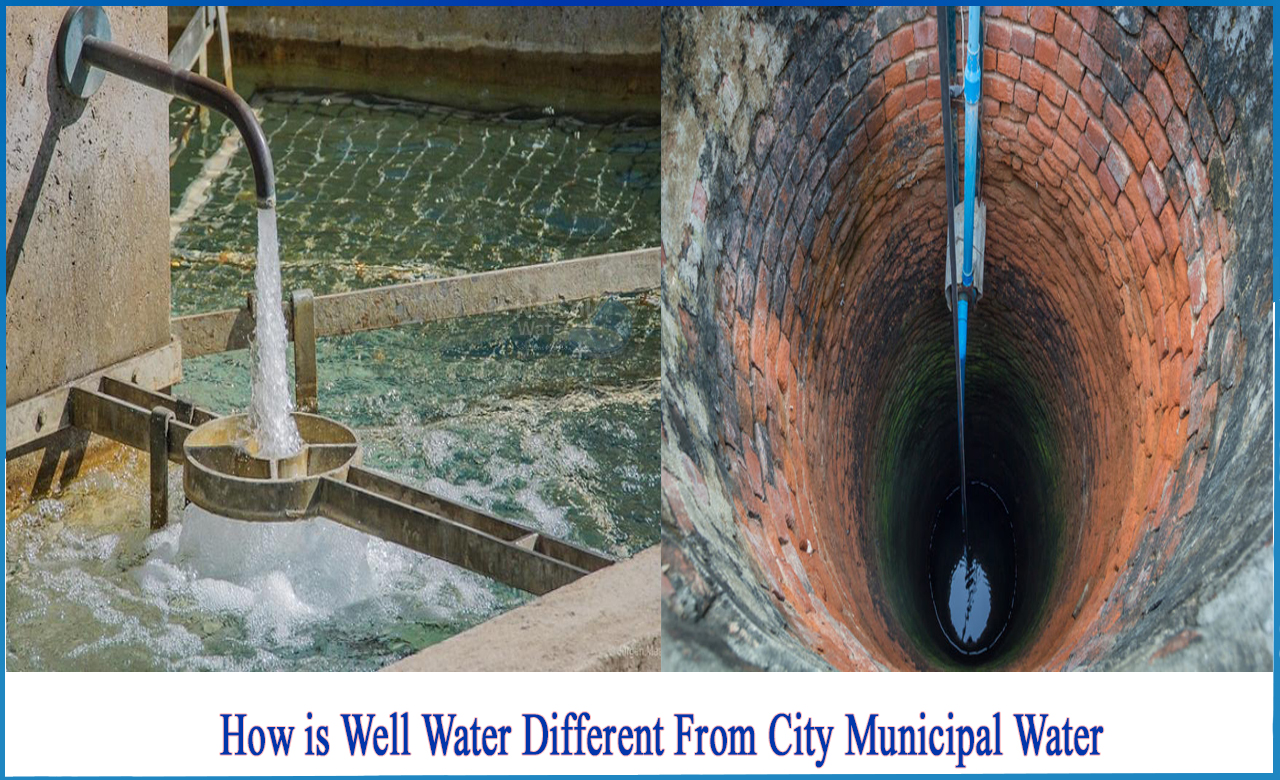What is the Difference between Well Water and Municipal Water?
There are several dif?ference between Well Water and Municipal Water
MUNICIPAL WATER
Municipal water is tap water that is delivered to various industries and homes via underground pipes. This water is fully treated and processed before being delivered to these destinations, which means that the majority of impurities are removed before you drink it or use it in the shower. Despite the fact that the Environmental Protection Agency has established water quality standards that must be met by each municipality, the quality of tap water can vary from one community to the next.
The EPA has established water quality standards that take into account nearly 90 different contaminants. Even though municipal water is not as healthy as purified or filtered water, it is generally safe to drink. However, certain contaminants may exist in the water, increasing your risk of developing certain health conditions and diseases.
It's also important to note that a small number of municipalities still send tap water through lead pipes, which can be extremely harmful to one's health. Rivers, reservoirs, large wells, and lakes are the primary sources of municipal water. While municipal water is typically contaminated when it exists as source water prior to treatment, contamination can occur within the distribution system after the water has been treated.
Among the numerous contaminants that can affect municipal water are:
· Minerals and chemicals found in nature
· Pesticides
· Fertilizers
· Wastewater discharges
· Sewer backups
· Several manufacturing processes
WELL WATER
A well was once a long, wide shaft dug deep into the soil to reach the water table beneath the ground. A water table is a collection of water that seeps through the ground from nearby bodies of water and precipitation. The water table is usually found on top of a hard bedrock layer that, depending on the geology of your area, may contain water-soluble minerals.
Wells are now drilled to be smaller in size so that they can reach deeper water deposits, but they still have the same quality problems. When drilling a well or using an existing well on a new property, it is critical to perform a well water test. Well water's chemical composition can change over time, so it's critical to keep track of your water quality.
BENEFITS OF WELL WATER
TENDS TO BE CLEANER: Underground aquifers provide the source of well water. Because of the depth of the aquifers, the water is sometimes less impacted by natural runoff. Many contaminants are carried by water when it flows into rivers and lakes (from farming, pollutants, gardening chemicals, etc.). These contaminants must then be removed from the water before it can be consumed. While contaminants can affect well water if they are close to your water source, the depth of your water often means contamination is less likely.
CONTAINS MORE NATURAL MINERALS: Another advantage of getting water from deep underground is that it contains more natural minerals. Again, city water collected from surface water contains a high concentration of natural minerals; however, these minerals are frequently removed or reduced during the treatment and filtration process. However, if you get your water from a private well, these natural minerals (and their numerous benefits) are still present in your drinking water.
NO WATER BILL: This is a significant benefit for many people who own a private well! You will not have to pay city water utilities if your household only uses the well (and is not also connected to city water). Instead, you can use as much water as your well allows without incurring a monthly fee.




